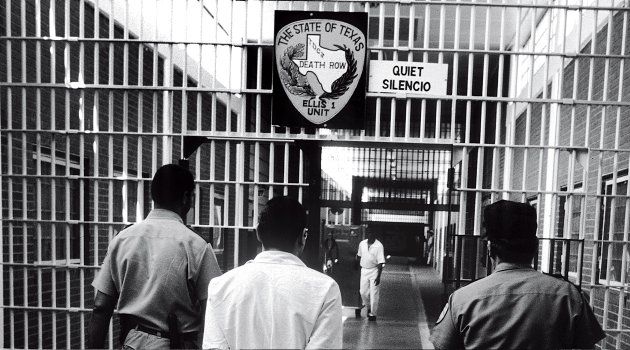
"Why would you abolish the death penalty when a majority of the voters support it?" Republican Tom Foley asked Democrat Dan Malloy in a robust debate last week to help determine which man should be Connecticut's next governor. "Why would you do that? It's arrogant."
Foley's claim that it's "arrogant" for officeholders to substitute their judgment for the wishes of the majority would, taken to its logical conclusion, mean that government could be run by a computer processing polls. Nice platform. Yet even a pandering argument can be revealing. Capital punishment may feel like abortion or gun control—a tired debate where minds can't be changed. But there's a discussion worth having about the hypocritical conservative attitude toward the life-and-death power of the state.

The government, GOP politicians suggest, can't run a three-car funeral. It's unaccountable, intrusive, and has too much power to revoke people's rights. But when it comes to the ultimate right—life—these same conservatives almost invariably view the government's actions as flawless and not subject to review even if injustice surfaces. Who's arrogant now?
In Connecticut, Foley is hoping to ride the death penalty to victory because of one case—the terrifying home invasion that led to the deaths of Jennifer Hawke-Petit and her two daughters (her husband survived). Suddenly, there's talk of the first execution in Connecticut in 50 years. The defense's case for suspect Steven Hayes was so weak that it relied not on establishing a shred of doubt, but on showing that police should have entered the house earlier to prevent Hayes and another assailant from finishing off their victims by setting the house on fire.
And yet, just when you start thinking the death penalty isn't such a bad idea after all, another house-fire murder case comes back into view, this one in Texas. Cameron Todd Willingham was convicted of murder in 1992 after testimony that the house fire that killed his three young daughters (his wife was elsewhere) had been arson. But the conviction was based on junk science claiming evidence of accelerants where none existed. In the years since, nearly a dozen top fire inspectors have ruled out arson. A jailhouse snitch essentially recanted his testimony.
No matter. Willing-ham, the subject of a New Yorker piece last year, was executed in 2004. Afterward, Texas Gov. Rick Perry, now clinging to a lead in the polls over former Houston mayor Bill White, seemingly did everything he could to cover up evidence clearing Willingham. Instead of allowing an investigation to proceed, Perry last year fired members of the Texas Forensic Science Commission who exposed the "evidence" used to convict him. (Perry felt the commission was biased.)
"The governor's office had access to an affidavit that it was faulty science, and either ignored it or dismissed it," says former Texas governor Mark White (no relation to Bill). White, a Democrat who signed off on more than 20 executions as governor in the '80s (though none as ill founded as Willingham's), doesn't oppose the death penalty. But now he says he's appalled by how dysfunctional Texas's criminal-justice system has become. The state, White says, has a huge backlog of DNA kits that have never been examined and too many publicity-seeking prosecutors willing to twist facts to win convictions. Texas, with a history of capital cases in which the defense attorney fell asleep at trial or ignored exculpatory evidence, often boasts more executions in a year than the rest of the country combined.
The flip side of the Lone Star honor culture is an unusual legal process for people to reclaim their reputations, even posthumously. The Willingham family won a hearing in a special court of inquiry. This week Mark White will deliver the summation in that court. He plans to argue that there's "compelling evidence" the forensic evidence of arson was nonexistent. "The whole foundation of the case was arson," White told me. "If there's no arson, there's no crime, and, therefore, he is innocent." Innocent and dead.
Perry's reprehensible handling of this case isn't likely to stop his reelection. But that shouldn't stop the rest of us from applying common sense to this most emotional of issues. Even those who insist on supporting capital punishment can at least admit that an irreversible sentence should be rare and applied only when there's no sliver of doubt. Otherwise, Cameron Willingham won't be the last man who dies so outrageously at the hands of the state. And what could be more arrogant than that?
Uncommon Knowledge
Newsweek is committed to challenging conventional wisdom and finding connections in the search for common ground.
Newsweek is committed to challenging conventional wisdom and finding connections in the search for common ground.
About the writer
To read how Newsweek uses AI as a newsroom tool, Click here.





